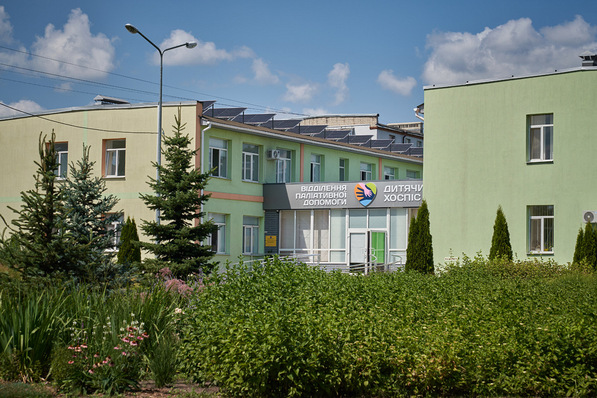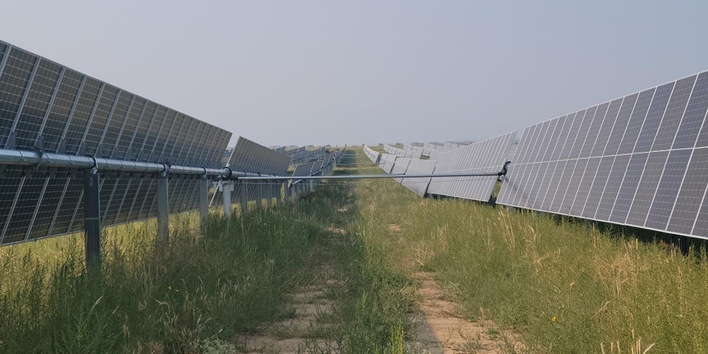Europe's largest solar retailer has a clear vision: “For us, renewable energy and sustainability go hand in hand,” says Frank Jessel, CEO of BayWa r.e. Solar Trade in Tübingen. “As a sustainable company, we see it as our responsibility to cut CO₂ emissions across the board , whether in our internal processes or through how we manage our logistics and supply chains.”
Perovskite: the next major solar technology?
Roof and façades with solar modules
A prime example of sector coupling and sustainability is BayWa r.e.'s new, self-sufficient buildings in Tübingen, completed in 2023. These CO₂-neutral structures use eco-friendly materials and generate solar power from both the roof and façade. The energy is stored in high-performance systems, with the halls featuring UPS and concrete core activation for energy storage.
Background: TÜV Rheinland: Increasing requirements for solar modules
Installed with 1.3 megawatts of solar modules on the roof and facade, the warehouse generates around 1.3 million kilowatt-hours annually – almost double what's needed. The power runs industrial trucks, 54 charging stations for electric cars, and e-bikes for employees. It also provides electricity, heat, and air conditioning through innovative ceiling heating and cooling systems. The concept is further supported by six large heat pumps and a solar storage system with a one-megawatt-hour capacity.
Powered logistics
In collaboration with long-term logistics partner Emons Logistik, BayWa r.e. Solar Trade is testing the fully electric Mercedes-Benz E Actros 300 in real-world operations. The truck, which is powered entirely by green electricity from its own solar system, has already completed several regional delivery trips.
Equipped with three 112 kWh battery packs, the E Actros 300 consumes 336 kWh and offers a range of up to 220 kilometres – perfect for short and medium distances with zero emissions.
Fraunhofer ISE: Solar module output often overstated
Stackable packaging
In 2024, BayWa r.e. Solar Trade began developing a new environmentally friendly packaging system. The goal: stackable pallets with minimal plastic film.
The project resulted in six new cardboard packaging designs. These stackable pallets optimise loading space, which further serves to reduce emissions during transport. In Tübingen alone, this innovation saves an average of three truckloads per day, cutting 438 tons of CO₂ every year.
Expert analysis: 10 must-know technological trends driving solar and storage development
The Venlo warehouse in the Netherlands serves as a fully climate-neutral logistics hub. Certified “Excellent” by the Building Research Establishment Environmental Assessment Method (BREEAM), the warehouse features a 954 kWh photovoltaic system on the roof, providing enough energy to run both the facility and its CO₂-neutral vehicle fleet.
From truck to barge
Another means of reducing emissions is intermodal transport, namely, the combination of different modes of transportation. For a large portion of components imported via Rotterdam, shipments to the central European warehouse in Venlo have been switched from road to inland waterway vessels. This shift removes 1,500 trucks from the road and cuts around 200 tonnes of CO₂ annually. The integration of inland vessels not only supports the retailer's sustainability goals but also boosts supply chain efficiency. (HS/TF)
More information at the BayWa r.e. website
More on supply chains: Solar Stewardship Initiative: Supply Chain Traceability Standard published








